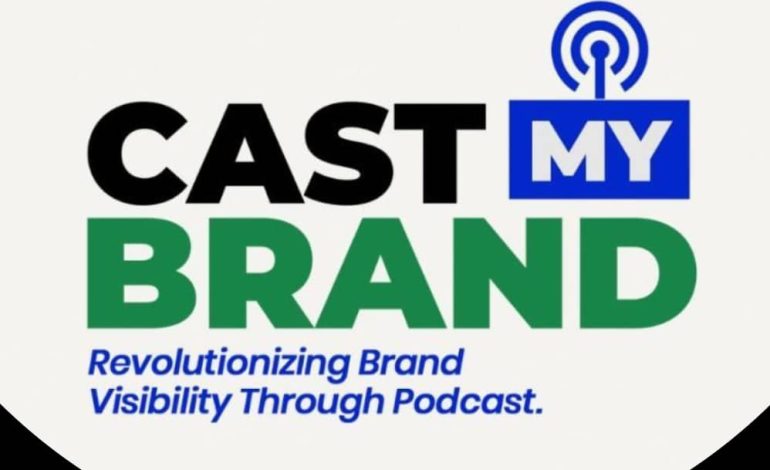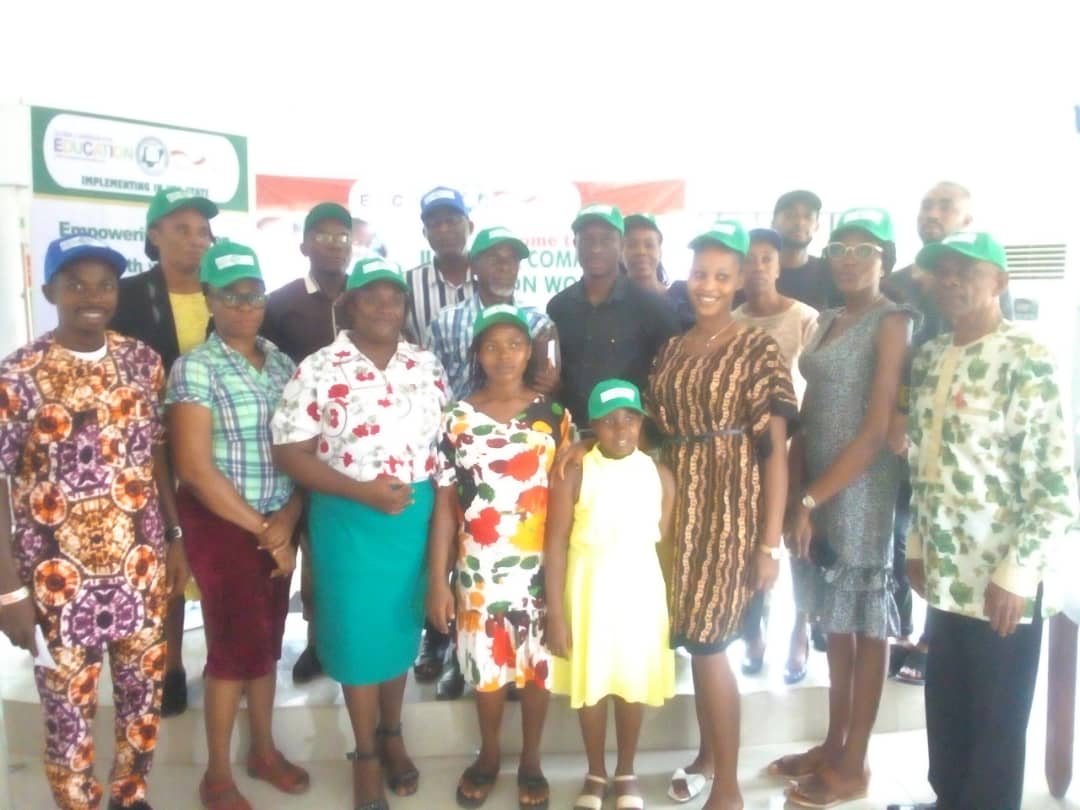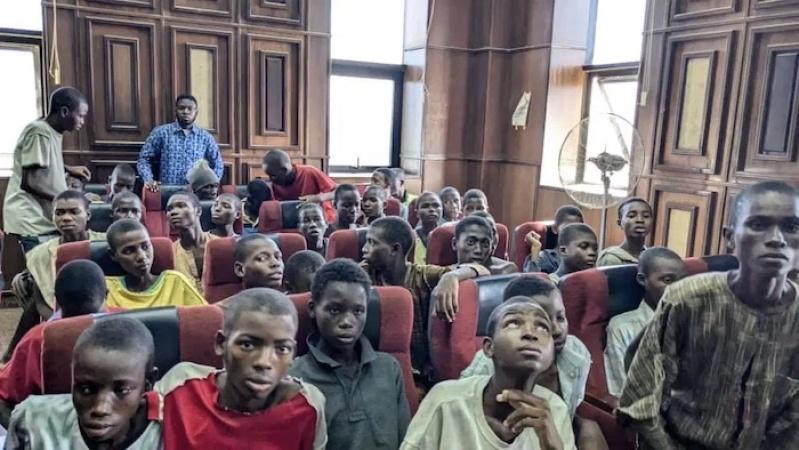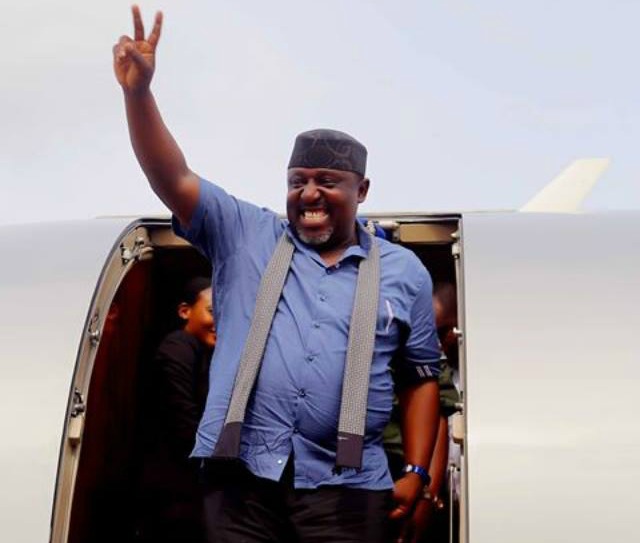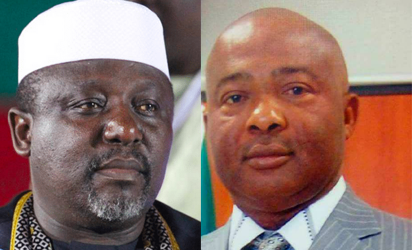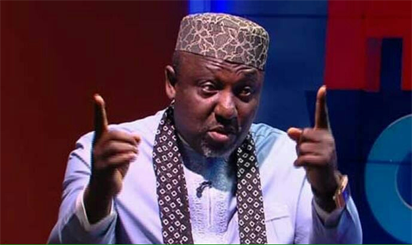GIZ, NOGALSS Mobilize Owerri Communities for Digital Skills Project to Boost Economic Growth
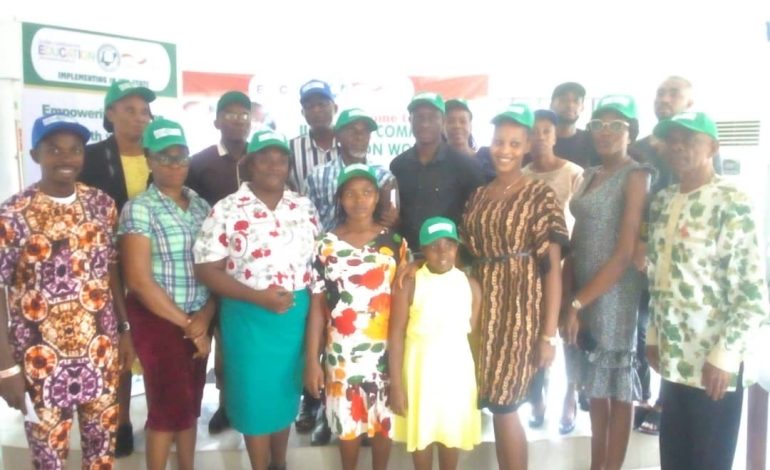
In continuation of her mobilization and sensation exercise before its workshop, the Imo State GIZ Project Team visited Umuoda Community, Owerri Municipal Local Government Area (LGA), Imo State.
According to the Team Lead,Mrs Ihuoma Onwuchekwa, the workshop is aimed to sensitize stakeholders about the GIZ project focused on empowering children and youth with digital competence through inter-generational learning.
Speaking further, she said; “The project seeks to equip young people with vital digital skills necessary for sustainable livelihoods in the fast-evolving digital world.”
Emphasizing further, the Team Lead
Mrs. Ihuoma Onwuchekwa while delivering her opening remarks said; “the importance of digital skills in today’s world is such that no progressive nation can ignore the digital technological revolution.
Drawing from the project’s objectives, she spoke about the significant role it plays in preparing young people for economic independence by bridging the digital gap. Mrs. Onwuchekwa highlighted the collaboration between GIZ, NORGALSS, and the community, noting that the successful implementation of the project will require active participation from community members, including local leaders and guardians.
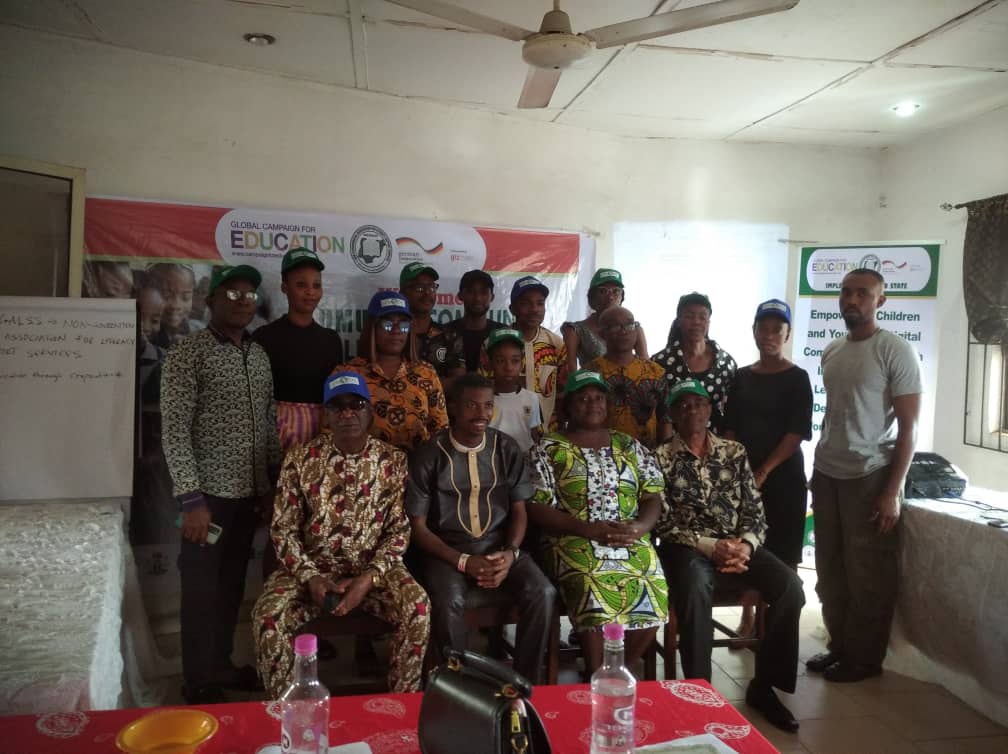
She also reiterated the need for stakeholder support to ensure smooth enrollment and engagement from the youth in the community, stressing that this initiative aligns with the global shift towards digital literacy, which will place Nigeria on par with other nations in terms of technological advancement.
Presentation on the Overview, Objectives, and Goals of the Project, Dr. Emmanuel Obasi, a NOGALSS Executive and facilitator at the workshop, delivered a comprehensive presentation on the project overview. He outlined the primary objectives of the project, which include: Empowering out-of-school children and youth with essential digital competencies.
He also described inter-generational learning as a means to foster collaboration between the younger and older generations in the community.
Speaking further he pointed out that digital competence leads to long-term sustainable livelihoods, especially for those living in underserved areas.
Dr. Obasi also explained that the project aims to bridge the gap in digital skills among youths and provide them with a platform to become self-sufficient. He emphasized that the project’s success depends on the collaborative efforts of both the GIZ project team and the local community.
Mr. Ifeanyichukwu Ibeh, the Communication and Advocacy Officer, in the same vein presented the project’s mobilization strategies and sustainability plans. He explained how the community leaders and stakeholders would play a critical role in spreading awareness about the project to ensure full participation.
He also emphasized the importance of involving not only the youth but also their guardians and other community members to support the project’s objectives.
Mr. Ibeh assured the stakeholders that the sustainability of the project had been carefully considered. The digital skills learned by the youth will be applicable even beyond the project’s duration, ensuring long-term benefits for the community.
On his part, Mr. Emeka Ani, the Monitoring and Evaluation Officer, explained that the M&E framework is designed to track the project’s performance, assess its impact, and ensure accountability.
He listed the key components of the framework to include:
“Data Collection: Routine collection of attendance records, feedback forms from learners, and progress reports from facilitators will be conducted.
“Monitoring Tools: The Community-Based Management Committee (CBMC) and Cluster Managers will utilize attendance registers, digital devices, and reporting forms to document the learning progress.
“Assessments: Learners will undergo three major assessments over the six-month period to measure their progress and evaluate their digital competence. These assessments will lead to the certification of learners who successfully complete the program.”
Mr. Ani assured stakeholders that a platform for joint supervision between the GIZ project team and NOGALSS had been created, giving room for transparency and shared oversight of the project. He added that the framework would ensure the project remains on course and achieves its objectives.
Stakeholder Reactions and Questions
Several participants raised important questions and provided feedback:
In the reactions, Mrs. Florence Uzoma, Women Leader Umuodu Community, inquired if there were any selection criteria for learners and asked for clarification.
The Youth Leader of Umuoda Community, Mr Anuruo Prince Obinna, raised concerns about the sustainability of the project and urged that the program should be transparent and reach the target group without bias.
The Former Chairman of NOGALSS, Imo State, expressed his gratitude to GIZ for introducing this initiative. He emphasized the importance of digital literacy in competing with other countries and highlighted the deficiencies in Nigeria’s current educational curriculum, praising the project as a positive step forward.
In his closing remarks, the Umuoda Community Leader, Mr Anosike Samuel, thanked the sponsors of the project and NOGALSS for bringing this initiative to their community. He assured the GIZ team that they would receive full support from the community, expressing confidence in the project’s ability to uplift the community through digital competence.
Meanwhile, the second-day mobilization workshop at Umuoda Community was provided a platform for the GIZ project team to effectively communicate the goals of the initiative while addressing community concerns. The involvement of local stakeholders and the positive feedback received indicate a strong foundation for the successful implementation of the project.
The workshop witnessed the attendance of various stakeholders, including:
Imo State GIZ Project Team,
Imo State NOGALSS Executives,
CBMC Representatives,
Representatives from the Imo State Ministry of Education, Ministry of Women Affairs
Guardians and Prospective Learners and members of the Community, including women, youths and leaders.
